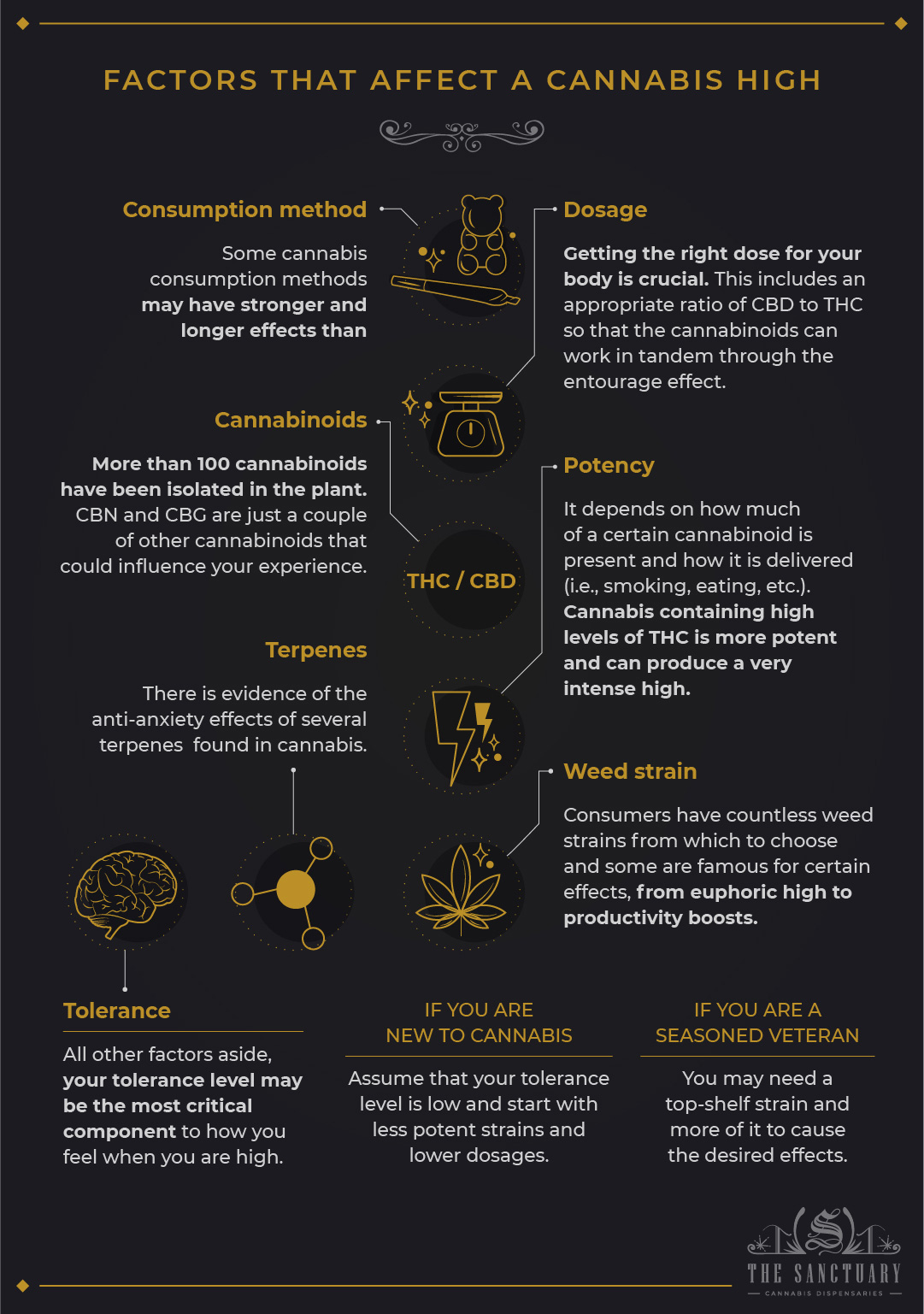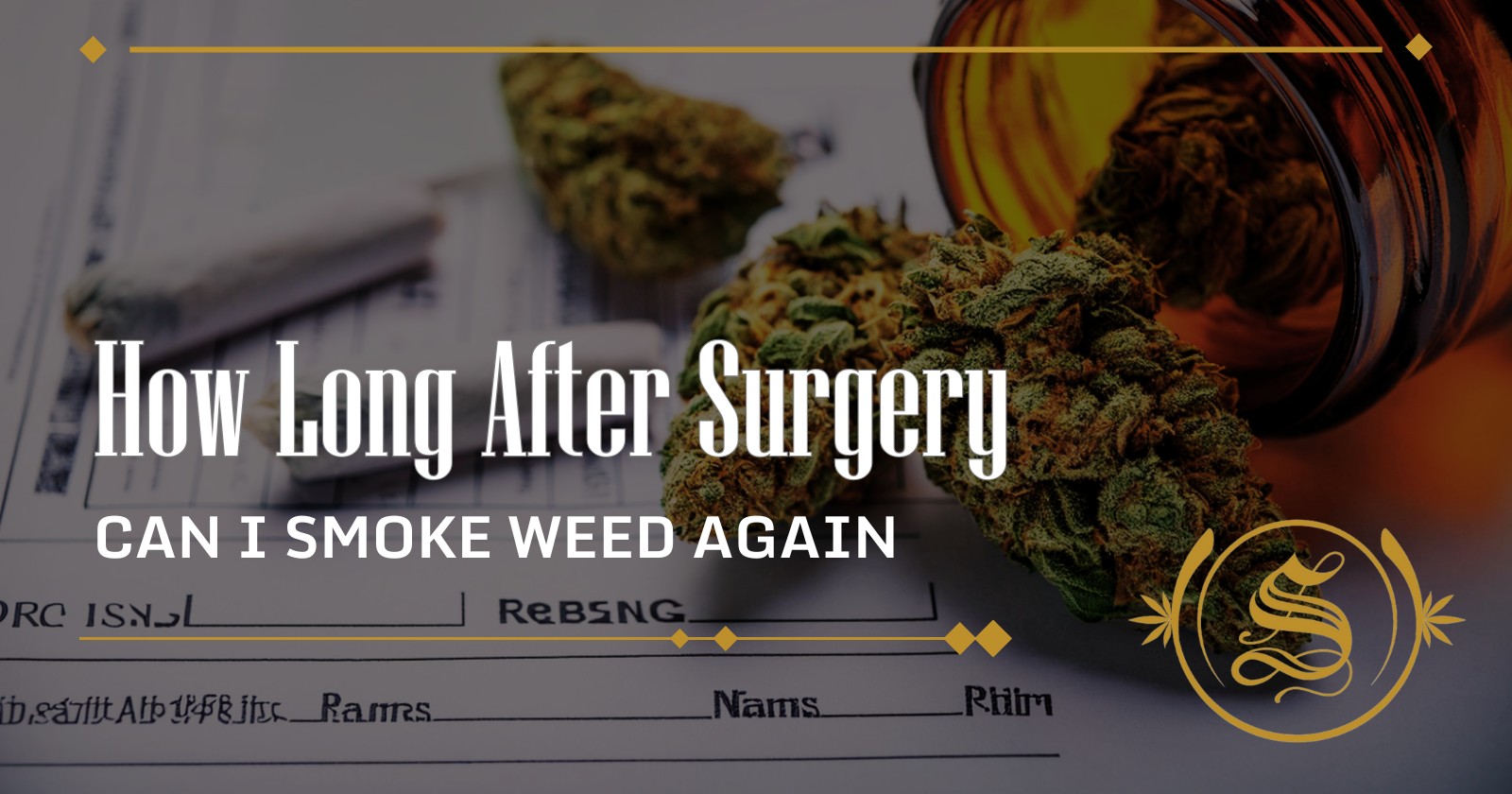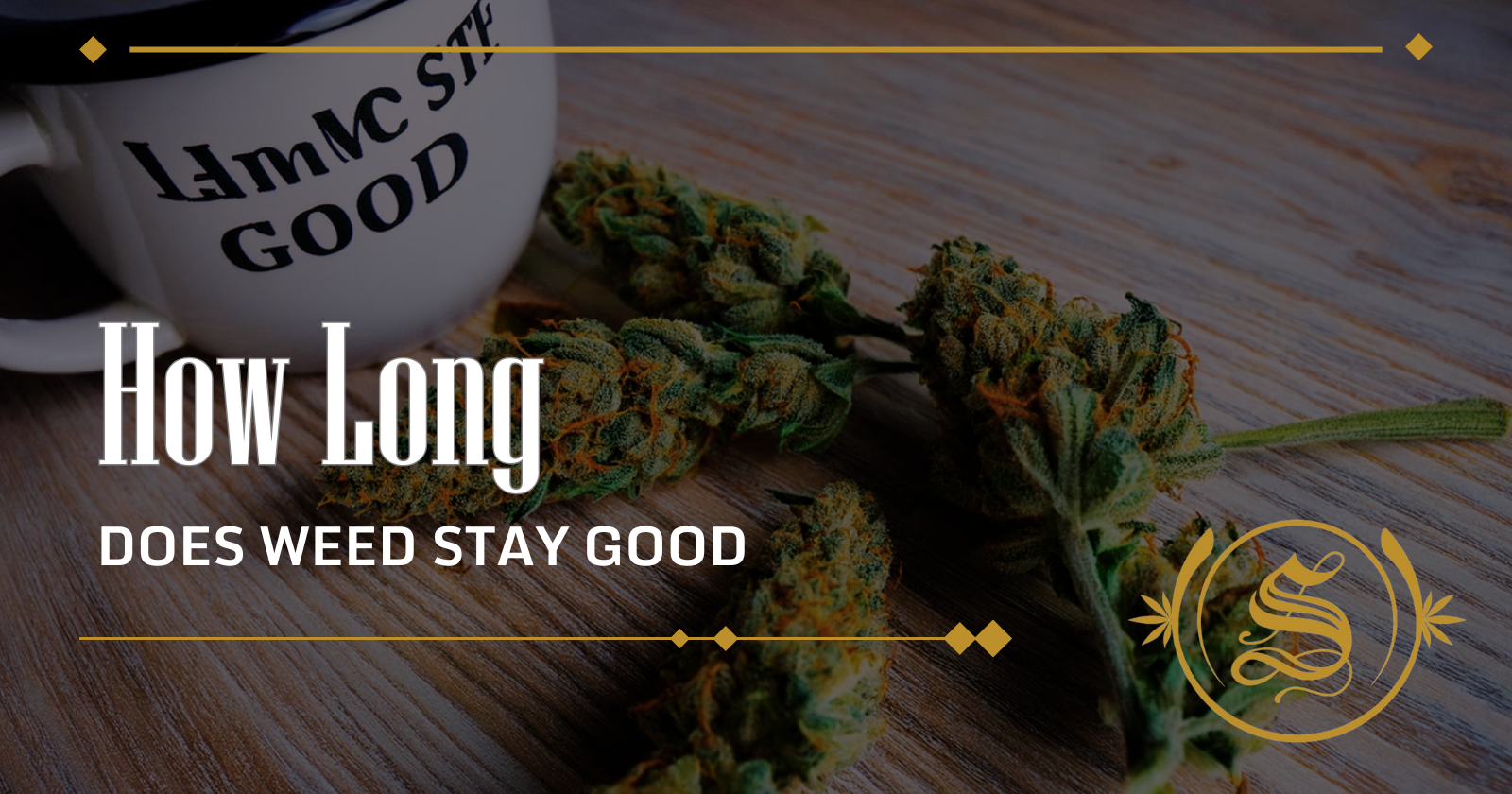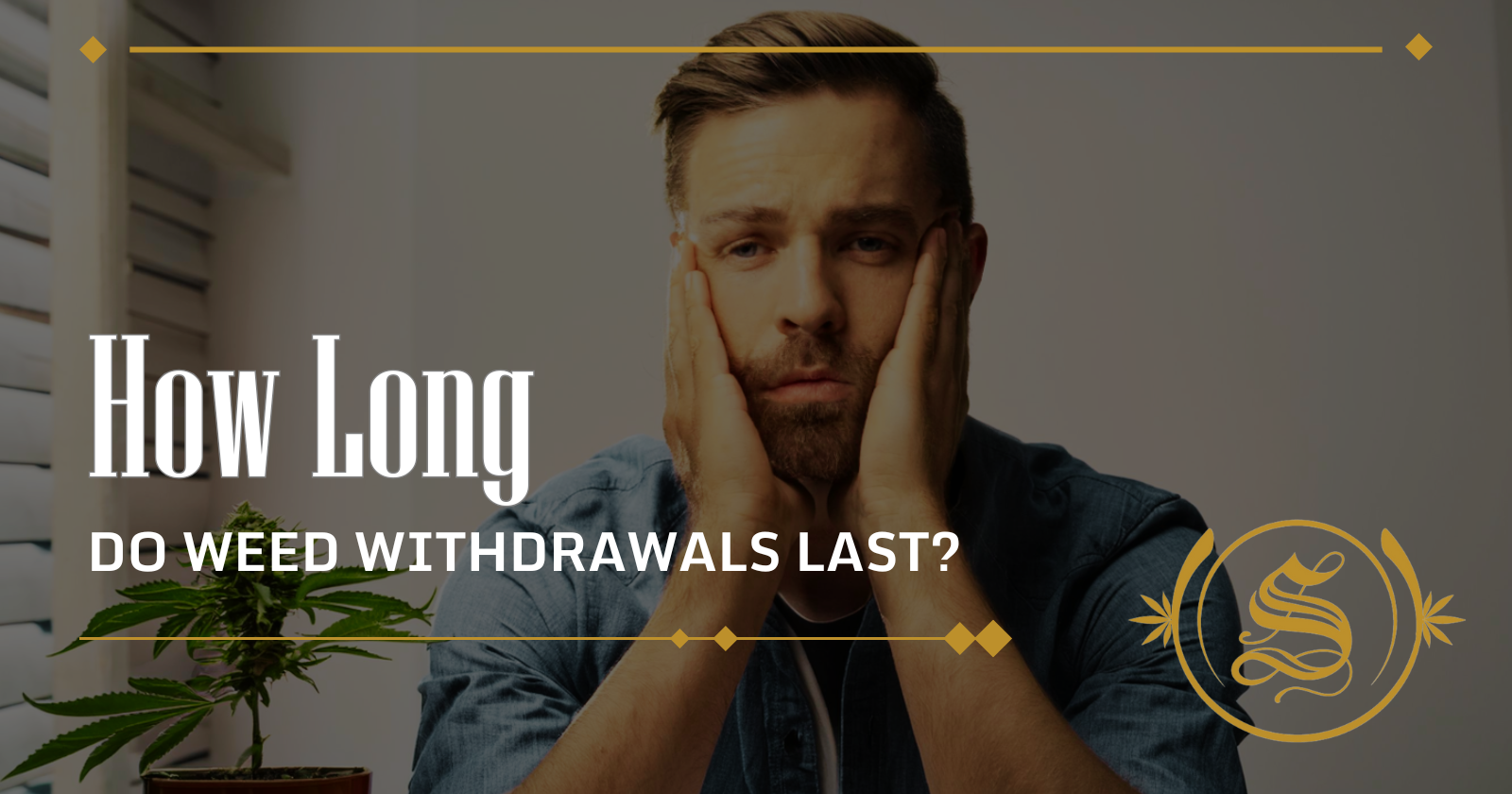Iftikhar Alam
Author
Reviewed by Cannabis Experts
Published on: June 3, 2021 | Updated on: September 3, 2024
Cannabis is becoming more generally recognized and utilized today, yet there are still many unanswered concerns about its impact on our health. As we all know, cannabis is most famous for its psychoactive qualities and the euphoric sensation that most users get after consuming it.
If you’re new to cannabis culture, you might be wondering how individuals feel while they are high. Weed is a one-of-a-kind substance with unique effects, and you may never understand what it means to be high unless you experience it. There is, however, sufficient information to provide novice users with a rough sense of what to expect.
In terms of addressing the question, “How does it feel to be high?”
There is no definitive response since, for a variety of reasons, your experience will be vastly different from that of the person smoking next to you.
Why does weed make people high?
THC (delta-9-tetrahydrocannabinol) is the active component in cannabis that causes individuals to become high. When THC is smoked, ingested, or vaped, it creates a high. It gets into the blood circulation and travels to the brain. It then binds to receptors in the brain, causing most individuals to experience a high.
THC also inhibits communication between the brain and the rest of the body, which is why cannabis is so relaxing. THC is eventually broken down and passed through urine and feces.
Cannabis users frequently praise the advantages of being high. These feelings may include:
- Euphoria
- Relaxation
- Enthusiasm
- Hunger
- Increase in creativity
- Increased sensitivity to color, touch, smell, light, taste, and sound
Because the quantity of THC in your blood fluctuates over time, you might go through several phases of effects. Feelings of euphoria, for example, seem to peak when THC levels in the blood have reached their maximum.
Factors that affect a cannabis high

Each person is affected differently by cannabis. Some people are extremely sensitive to the effects of cannabis, while others may not perceive them at all.
Several variables influence how you react to cannabis, including:
- Consumption method: Some cannabis intake techniques may provide more powerful and lasting effects than others. Edibles, for example, are often more effective and long-lasting in their effects than vaping or smoking, although individual user experiences may vary. A greater high can also be obtained by smoking from a bong rather than a tiny pipe.
- Dosage: It’s critical to get the correct dosage for your body. This includes a good THC-to-CBD ratio so that the cannabinoids act together through the entourage effect.
- Cannabinoids: The two most common cannabinoids found in cannabis are THC and CBD, although the plant contains more than 100 cannabinoids. CBN and CBG are two additional cannabinoids that may have an impact on your experience.
- Potency: The potency of cannabis is determined by the amount of cannabinoids present and how the cannabinoids are administered (i.e., smoking, eating, etc.). Cannabis with a high THC content is more potent and can create a powerful high.
- Terpenes: Though there are no human studies on terpenes’ involvement in making users feel high, there is evidence that many terpenes typically present in cannabis have anti-anxiety properties. Pinene, a terpene found in cannabis, has shown potential as a therapy for schizophrenia.
- Cannabis strain: Consumers may pick from a wide variety of cannabis strains, some of which are well-known for specific effects. OG Kush is a perennial favorite thanks to its intense and euphoric high. Other strains, like Jack Herer, have been said to aid users in concentrating and being more productive.
- Tolerance: Putting all other things aside, your tolerance level may be the most important element in determining how you feel when you are high. If you are a newer weed user, expect to have a poor tolerance and therefore start with milder strains and smaller doses. If you are a seasoned veteran, a top-shelf strain and more of it may be required to achieve the desired results.
How different strains affect your high
Cannabis strains are distinct varieties of the same plant. Cannabis comes in three varieties: indica, sativa, and hybrids.
Indica strains are associated with physical effects like relaxation, whilst sativa strains are said to create a more energetic, cerebral high. The effects of both indica and sativa strains are considered to be combined in hybrid strains. These variations in high, however, have not been empirically established. Furthermore, some scientists feel they are baseless.
“One cannot in any way currently guess the biochemical content of a given cannabis plant based on its height, branching, or leaf morphology,” according to a 2016 interview with Dr. Ethan Russo, an expert on the human endocannabinoid system.
“The differences in observed effects of cannabis are then due to their terpenoid content,” he continued. Terpenoids are a large category of chemical substances that occur naturally in plants. Humans can be affected in a number of ways by them.
What does it feel like to be high on edibles?
Edibles are cannabis-based foods. They come in a variety of shapes and sizes, from candies to brownies, and include one or both of the active chemicals in weed, THC and CBD (cannabidiol).
Ingesting cannabis, whether in the form of tinctures, sprays, or food and drink, produces a different high than smoking does. It’s possible that the high will be more powerful and last longer. THC is delivered into the blood circulation over a longer period of time, thus the onset is slower than smoking.
It might take anywhere from 30 to 120 minutes to feel the effects of cannabis edibles. Edible highs can last up to 8 hours, or until the next day when you wake up.
What does it feel like to vape cannabis?
Vaping cannabis is not the same as smoking it. When you vape, you inhale vapor rather than smoke. When compared to other techniques, vaping releases larger quantities of weed’s active components. As a result, vaping might result in a more potent high.
Vaping should have the same immediate consequences as smoking. These side effects might continue for up to 4 hours. According to the findings of a 2018 study, vaporizing cannabis generated greater blood THC levels and stronger effects than smoking the same quantity.
THC vs. CBD highs
Cannabis plants contain both CBD and THC in their natural state. CBD may be separated from the THC component in the cannabis plant. CBD is used to make tinctures, oils, edibles, and other goods without the psychoactive effects of THC. Despite this, many people believe CBD and THC have the same effects because they are both present in the same plant. CBD, on the other hand, is non-intoxicating, meaning it will not get you high.
Both have an effect on the brain’s cannabinoid type 1 (CB1) receptors. The sort of influence, on the other hand, explains a lot about why they create such different outcomes. CB1 receptors are activated by THC. Euphoria, or the high associated with cannabis, is the result of this.
CBD, on the other hand, works as a CB1 inhibitor. It prevents the CB1 receptors from causing intoxication. When CBD is combined with THC, the effects of THC may be reduced.
How long does a weed high last?
The length of a cannabis high is determined by a number of elements, but the manner of cannabis ingestion is the most important. The high you receive from eating an edible will last a lot longer than the high you get from puffing on a joint.
This is because the duration of the high represents the time it takes for THC to reach peak saturation in your bloodstream and then be expelled from your system.
The high is very instantaneous when you smoke cannabis. According to anecdotal evidence and 2011 research published in the Journal of Addiction Medicine, THC levels peak during the first 30 minutes to an hour after inhalation. The high from inhaled cannabis can continue for several hours, though it usually fades after the first hour or two.
When utilizing concentrates, the benefits are almost instantaneous, although the duration is primarily determined by individual tolerance. Others who routinely dab high-THC concentrates may notice the effects wearing off in 1 to 3 hours, while those who are new to concentrates may experience them all day.
The length of a cannabis high, as well as any potential negative effects, is determined by your biological composition and the chemical makeup of the cannabis you are consuming.
Sources
Footnotes
- Pertwee RG. The diverse CB1 and CB2 receptor pharmacology of three plant cannabinoids: delta9-tetrahydrocannabinol, cannabidiol and delta9-tetrahydrocannabivarin. British Journal of Pharmacology. 2008;153(2):199-215.
- Crean RD, Crane NA, Mason BJ. An evidence based review of acute and long-term effects of cannabis use on executive cognitive functions. Journal of Addiction Medicine. 2011;5(1):1-8.
- Atakan Z. Cannabis, a complex plant: different compounds and different effects on individuals. Therapeutic advances in psychopharmacology. 2012;2(6):241-54. doi: 10.1177/2045125312457586.
- Balíková M, Hložek T, Páleníček T, Tylš F, Viktorinová M, Melicher T, Androvičová R, Tomíček P, Roman M, Horáček J. Time profile of serum THC levels in occasional and chronic marijuana smokers after acute drug use – implication for driving motor vehicles. Soud Lek. 2014;59(1):2-6.
- Russo EB. The Case for the Entourage Effect and Conventional Breeding of Clinical Cannabis: No “Strain,” No Gain. Frontiers in Plant Science. 2019;9:1969.
- de Sousa DP, de Almeida Soares Hocayen P, Andrade LN, Andreatini R. A Systematic Review of the Anxiolytic-Like Effects of Essential Oils in Animal Models. Molecules. 2015;20(10):18620-60.
- Ueno H, Shimada A, Suemitsu S, Murakami S, Kitamura N, Wani K, Matsumoto Y, Okamoto M, Ishihara T. Attenuation Effects of Alpha-Pinene Inhalation on Mice with Dizocilpine-Induced Psychiatric-Like Behaviour. Evidence-based complementary and alternative medicine: eCAM. 2019;2019:2745453.
- Piomelli D, Russo EB. The Cannabis sativa versus Cannabis indica debate: an interview with Ethan Russo, MD. Cannabis and cannabinoid research. 2016;1(1):44-6.
- Barrus DG, Capogrossi KL, Cates SC, Gourdet CK, Peiper NC, Novak SP, Lefever TW, Wiley JL. Tasty THC: Promises and Challenges of Cannabis Edibles. Methods Rep RTI Press. 2016;2016:10.3768/rtipress.2016.op.0035.1611.
- Spindle TR, Cone EJ, Schlienz NJ, Mitchell JM, Bigelow GE, Flegel R, Hayes E, Vandrey R. Acute effects of smoked and vaporized cannabis in healthy adults who infrequently use cannabis: a crossover trial. JAMA network open. 2018;1(7):e184841-.
References
- CBN. Cresco Labs. Accessed 4/9/2024.
- What are cannabis terpenes and what do they do?. Leafly. Accessed 4/9/2024.
- Sensation of a Cannabis High: Smoking, Edibles, and Vaping. Healthline. Accessed 4/9/2024.
- What does it feel like to be high on cannabis?. Medical News Today. Accessed 4/9/2024.
The content provided on this blog is for informational purposes only and does not constitute medical, legal, or professional advice. Cannabis use is subject to local laws and regulations, which vary widely by jurisdiction. Always consult with a healthcare professional before starting any new treatment or altering an existing treatment regimen. The authors and publishers of this blog are not responsible for any actions taken based on the information provided herein. Use cannabis responsibly and in accordance with applicable laws. This blog is intended for adults aged 21 and over. The Sanctuary Dispensaries D186, D187.








